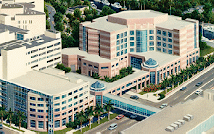
Computer experts are extremely wary of April 1. No -- not because it's April Fool's Day. But because, as CNET-TV Senior Editor Natali Del Conte explained on The Early Show Tuesday, it's when the "Conficker" computer worm is expected to reach out for new instructions from its creators -- and no one knows the nature of those instructions.
Conficker is already one of the worst computer security threats in years -- though experts agree April 1 could come and go with nothing more serious than the then-dreaded "Y2K" bug turned out to be -- over-hyped, to say the least. Still, better to be safe than sorry. Mac Users already are: Conficker only runs on Windows computers, in stealth mode, spying on your online activity seeking to obtain your passwords and financial information. You should be safe, Del Conte says, if you install the most recent updates for Microsoft and run regular anti-virus scans:
There are three potential tipoffs that your PC may have Conficker inside, Del Conte points out: It won't let you go to Microsoft.com, because the Web site has a fix, so if you can't get there, beware -- it's a sign that something may be fishy.
Conficker also won't let you get to the Web sites of various computer security vendors, such as those of Symantec, McAfee, etc. because, again, there are fixes there. So if you can't to them, Del Conte advise, be suspicious. Conficker may also prevent you from turning off your computer. If your machine won't power down, it may mean someone else is driving it, so disconnect the Internet cable and the power chord and call someone.
If your machine has had Conficker for awhile and hackers already have your financial information, log onto an uninfected computer and change all of your passwords immediately. Also, call the financial institutions you deal with and tell them you think someone may have stolen your passwords and that you'd like to be notified of any suspicious activity, and would like to change your account numbers.
There are three potential tipoffs that your PC may have Conficker inside, Del Conte points out: It won't let you go to Microsot.com, because the Web site has a fix, so if you can't get there, beware -- it's a sign that something may be fishy. Conficker also won't let you get to the Web sites of various computer security vendors, such as those of Symantec, McAfee, etc. because, again, there are fixes there. So if you can't to them, Del Conte advise, be suspicious. Conficker may also prevent you from turning off your computer.
If your machine won't power down, it may mean someone else is driving it, so disconnect the Internet cable and the power chord and call someone. If your machine has had Conficker for awhile and hackers already have your financial information, log onto an uninfected computer and change all of your passwords immediately. Also, call the financial institutions you deal with and tell them you think someone may have stolen your passwords and that you'd like to be notified of any suspicious activity, and would like to change your account numbers.
If your machine won't power down, it may mean someone else is driving it, so disconnect the Internet cable and the power chord and call someone. If your machine has had Conficker for awhile and hackers already have your financial information, log onto an uninfected computer and change all of your passwords immediately. Also, call the financial institutions you deal with and tell them you think someone may have stolen your passwords and that you'd like to be notified of any suspicious activity, and would like to change your account numbers.
































it's been two days since the Conficker scare and thankfully it looks like most people have emerged unscathed (myself included)
ReplyDelete